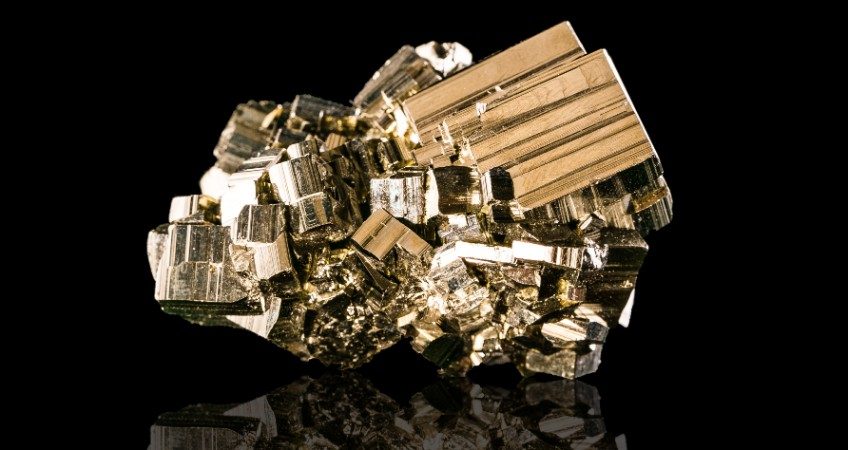
How to Tell if Gold is Real
If you have some gold in your possession, and you’re not sure of its worth, you’re not alone. Plenty of times, people have cases full of jewelry or inherited coins, with only a vague understanding of its worth. Unfortunately, a lot of “gold” people bring in for appraisal is fake, counterfeit, or worth much less than they anticipated.
Worse yet, a lot of investors buy gold from illegitimate dealers and end up paying top dollar for pyrite, or plated products.
Here’s how to tell if gold is real, and how to spot fake gold at a glance.
How to Tell if Gold is Real
Counterfeit money has been a problem since ancient civilization. In most cases though, modern tools and knowledge can empower us to see through the fakes and appraise gold at its real value. Here are some techniques you can use to tell if gold is real.
1. Perform a sink test
Gold is a very heavy metal. There are very few metals with a greater density than gold, and its weight, even in small denominations, might surprise you. If your gold products float, or fail to sink very quickly, you likely have a counterfeit on your hands.
To perform a simple sink test, use a container big enough to hold a significant amount of water plus the gold you want to test. The density of metal will cause it to sink to the bottom abruptly, whereas fake gold will float or drift slowly to the bottom.
This isn’t a completely foolproof method, since some counterfeiters plate heavy metals like iron, but it will certainly eliminate the lightweight counterfeits.
2. Look for a hallmark or numeric markings
Legitimate gold has markings, known as hallmarks, to indicate the purity of its gold. The hallmark can be found on the inside rim of a ring, or engraved in jewelry clasps. On coins and bullion, you can find the hallmark somewhere on the surface. The numeric markings will indicate the purity on a scale of one to 999 on the European scale or 0K to 24K on the American scale. A reputable gold dealer will be able to identify the hallmark and any other purity markings.
The exception occurs on ancient gold. If your gold was produced before King Henry III’s reign in 1238, it won’t have a hallmark. In the extremely rare event that you have ancient gold, you should have it appraised by a reputable gold expert.
3. How to tell if gold is real with white vinegar or acid
Gold is incredibly resilient compared to counterfeit metals. Some have gone so far as to say gold is virtually indestructible. The metals used to make fake gold are far less durable, and can be corroded by acidic materials.
White vinegar gold test
White vinegar rapidly dissolves most metals, but gold resists corrosion from acid and vinegar. Vinegar won’t break down or affect gold if it’s soaked for 15 minutes or less. Iron, alloys, and other base metals will readily corrode or discolor in that time frame. This is because gold, a noble metal, cannot be easily affected by corrosion, oxidation, or acid disintegration. Other noble metals include ruthenium, rhodium, palladium, silver, osmium, iridium, and platinum.
Don’t leave your gold in white vinegar for over 15 minutes, because even gold can be affected by vinegar on a long enough timeframe. Remove your gold from the white vinegar and thoroughly dry it.
Acid gold test
Use extreme caution when doing any acid tests with gold. If you are inexperienced, consult an expert first. To test gold’s authenticity with acid, lightly rub the gold-colored item a dark stone, which should leave a mark. Apply nitric acid to the mark. If the mark disappears, the substance isn’t gold.
If the mark doesn’t disappear, apply aqua regia, a mix of nitric acid and hydrochloric acid at a 3/1 ratio, to the mark. If the mark disappears, the item is a legitimate product.
BE EXTREMELY CAREFUL while handling nitric acid and hydrochloric acid. To avoid the risk of serious injury, leave the testing of gold to the trusted professionals.
4. Get your gold professionally appraised
The tried and true, risk-free way to judge the value of your gold is to get it appraised by a reputable gold dealer. For a small fee, most jewelry stores and gold dealers will test if your gold is genuine, whether it’s jewelry, coins, or bullion.
Get an Expert Opinion
When it comes to securing your financial future with gold, you can’t afford to take chances. Don’t take your coins, jewelry, and bullion to an amateur operation or a disreputable appraiser. To get the most accurate value of your precious metals, schedule a consultation with the precious metals experts at Republic Monetary Exchange.
